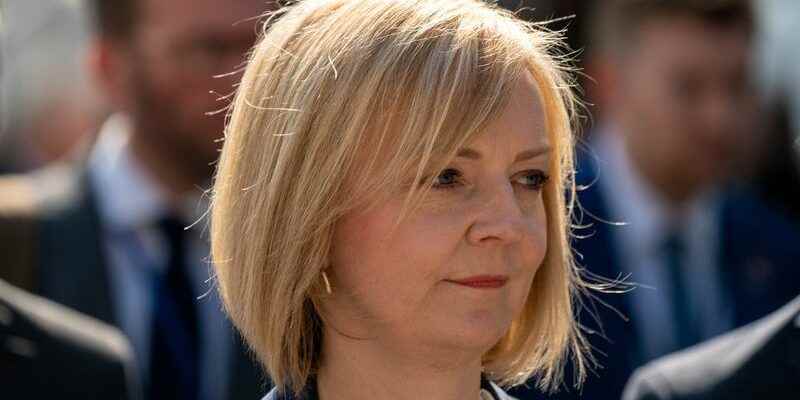by Elizabeth Piper and Andrew MacAskill
BIRMINGHAM, England (Reuters) – British Prime Minister Liz Truss tried on Sunday to reassure her party and public opinion by admitting that she should have “prepared the ground” better before unveiling the economic plan that has caused the pound sterling to fall and government bond yields to soar.
On the first day of the annual Conservative Party conference, from which she came, Liz Truss, in office for less than a month, tried to convince the British that she would come to their aid during a winter which promises to be difficult, and beyond. But she did not question the “growth plan” presented on September 23, much criticized by economists and investors alike for its lack of precision on the financing of the massive tax relief it provides.
On the contrary, she assured that this plan was the right one, suggesting that the critics had not taken the measure of the gravity of the country’s problems.
“I understand their concerns about what happened this week,” she told the BBC from Birmingham, central England, where the Tories conference is being held.
“I accept the plan that we announced and I accept the fact of having announced it quickly because we had to act, but I admit that we should have prepared the ground better,” she said.
But while some of the Conservative MPs no longer hide the fear of a defeat in the next legislative elections, scheduled for 2024, Liz Truss did not deny that her plan would require cuts in public spending and she refused to commit to indexing social benefits on inflation.
The pound has regained ground in recent days after the Bank of England (BoE) announced measures to ease financial market tensions, but yields on “gilts”, Britain’s government bonds, remain very high and some investors believe that the Truss government will have great difficulty in restoring its credibility.
Jake Berry, the chairman of the Conservative Party, suggested that the market reaction had been overreacting, while acknowledging that he was not an economist himself.
“So we’ll see where the markets are in six months,” he told Sky News.
S&P WORRIES ABOUT DEFICIT AND DEBT
Friday evening, the agency S&P Global lowered the perspective of its rating of the United Kingdom from “neutral” to “negative” underlining the risks of a marked deterioration in the budgetary situation and an increase in indebtedness.
S&P now expects a deficit of 5.5% of gross domestic product (GDP) on average over the period 2023-2025, against less than 3% previously, and no longer foresees a reduction in the debt/GDP ratio but on the contrary an increase. , to 97% by 2025.
The task of Liz Truss is all the more delicate as her project is also criticized within the conservative camp, in particular about the abolition of the marginal rate of income tax, currently set at 45%.
Some Tories fear they will once again be seen as “the bad guy party” because they cut taxes for the wealthy while doing little to bolster the purchasing power of the most vulnerable.
Upon arriving at the Birmingham Convention Centre, Business Minister Jacob Rees-Mogg, was booed by around 10 people and had to be escorted away by the police.
“It will be very, very difficult to defend the fact that we are reducing social benefits while at the same time we are reducing taxes for the richest”, admitted for his part the former minister Michael Gove during a public meeting. on the sidelines of the conference
Liz Truss nevertheless reaffirmed on Sunday her support for the abolition of the marginal rate of income tax, while specifying that this proposal was an initiative of her Minister of Finance, Kwasi Kwarteng.
“No, we didn’t, it was a decision that was taken by the Chancellor,” she replied when asked whether she had informed all members of the government on this point beforehand. ahead of Kwasi Kwarteng’s speech in Parliament.
The Prime Minister assured that she was not afraid to take unpopular decisions to promote economic growth.
“What concerns me is the success of our country, to allow our country to succeed,” she said. “I really believe that politics has focused too much on appearance, on how things are perceived.”
But she appeared to struggle in the face of questions from the BBC reporter about whether the abolition of certain taxes could be funded by cuts to public service appropriations.
Asked at least four times about this, she said: ‘I’m going to make sure the taxpayer gets what they pay for but I’m very, very determined to make sure we have excellent first class public services. .”
(Report Elizabeth Piper and Andrew MacAskill, French version Marc Angrand)
